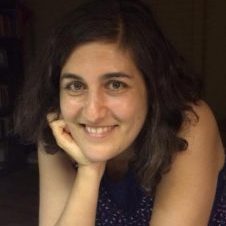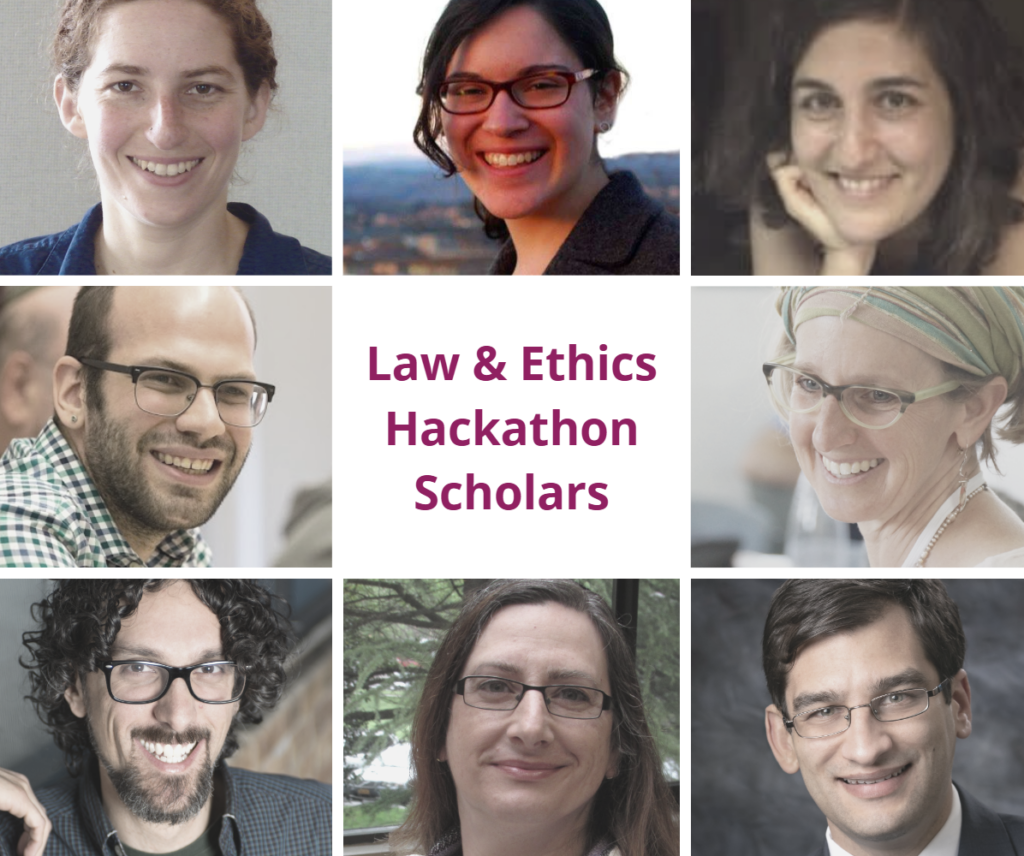
Program Overview
The onset of the COVID-19 epidemic has raised a slew of ethical questions, presenting new challenges for individuals, communities and governing bodies.
These questions have emerged at a particular crisis moment, but have a much more enduring effect on the way we think about creating a society that protects the health, dignity, and human rights of all people.
T’ruah has brought together eight people with expertise in halacha, Jewish thought, ethics, and history, with strong touch points to the lived experience of the Jewish community and communities with whom our destinies are interconnected, to embark together over the next three months on a process of deep learning and discernment.
Together, contributors to this project will produce papers that will offer guidelines for Jewish individuals and communities to approach distinct ethical questions that have emerged from the COVID-19 pandemic. The published papers, and accompanying educational materials including source sheets, toolkits and video clips, will provide Jewish clergy and educators with guidelines for approaching these challenges grounded in deep Jewish wisdom.
Ethical Questions Selected by Our Scholars:
1) How do we navigate tensions between liberty and security in extraordinary circumstances? Contact tracing is an essential tool for fighting the spread of COVID-19, but many recent tech-based suggestions about how to implement this public-health strategy broadly and quickly raise serious privacy concerns. How should Jews approach these concerns about contact tracing? (Shahar Colt and Ben Gurin)
2) What should we do about people who can’t pay rent? Who is responsible for rent shortfalls: landlords? tenants? the state? (Raphael Magarik and Tamar Zaken)
3) What, if any, health risks are worth taking in order to prevent individual or communal economic loss? To the extent that the countervailing risk is impoverishment, with its attendant threats to health, safety, and life, how should individuals and governments balance risks of virus spread with risks of impoverishment, especially when some parts of the community carry the economic burden and others the health risk? (Aryeh Bernstein and Meesh Hammer-Kossoy)
4) What responsibilities do employers hold toward employees during a pandemic? How much, and for how long must someone continue to pay an employee who cannot come to work due to the pandemic? When can someone request that an employee return and under what circumstances?(Alana Suskin and Ranana Dine)
Hackathon Scholars
Rabbi Aryeh Bernstein is a fifth-generation Chicago South Sider with extensive experience in Torah education, especially in progressive Jewish communities. Aryeh works as Director of Avodah’s Justice Fellowship in Chicago, Educational Consultant for the Jewish Council on Urban Affairs; Curricular Director for Anshe Sholom-B’nai Israel’s youth Mishmar program, and Staff Educator for the Jewish Initiative for Animals, and has previously taught and directed programs at Hadar Institute, Hyde Park Teen Beit Midrash, Mishkan Chicago, Camp Ramah in Wisconsin, and campuses, communities, and organizations around Israel and the U.S. A former Editor-Translator for the Koren English edition of the Steinsaltz Talmud and a current Senior Editor of Jewschool.com, Aryeh studied for seven years at Yeshivat Ma’ale Gilboa and also at the Jewish Theological Seminary, Yeshiva University, Yeshivat Chovevei Torah, and has rabbinic ordination from Rabbi Daniel Landes’s Yashrut Institute.
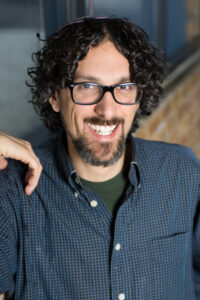
Ranana Dine is a doctoral student in religious ethics at the University of Chicago Divinity School. She is a research assistant in medical ethics at the University of Chicago’s MacLean Center for Clinical Medical Ethics and the managing editor of “Images: A Journal of Jewish Art and Culture.” Prior to moving to Chicago she spent two years at the University of Cambridge where she studied for MPhils in theology and medical humanities. Her scholarship, teaching, and writing focuses on topics ranging from Jewish medical ethics, the relationship of Judaism and the visual arts, and comparative Jewish-Christian thought. Her writing has been published in both popular and academic outlets, including the Lehrhaus, the Hadar Institute, Mosaic, the British Medical Journal: Medical Humanities, and the Journal of the American Academy of Religion. A native of the Washington DC area, Ranana graduated from Jewish day school before attending Williams College, a small liberal arts college in Western Massachusetts. In Chicago she founded and helps run the Trad Egal Shteibel, a monthly halakhic egalitarian house minyan in Lakeview/Lincoln Park, and the Lakeview Beit Midrash, a local learning community.
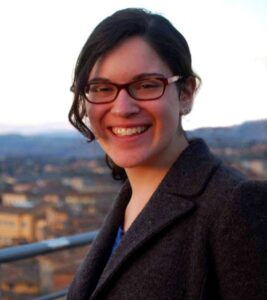
Rabbi Ben Gurin (he/him) is an incoming Ph.D. student at Boston University’s Graduate Program in Religion. He grew up in Fishers, IN, and graduated from Indiana University with a degree in Jewish Studies and Religious Studies with minors in History and Political Science. Ben received rabbinic ordination from Hebrew Union College-Jewish Institute of Religion, Los Angeles and is an alumnus of the Year Program and Kollel at the Pardes Institute for Jewish Studies. He has served as a rabbi and educator in a variety of settings including the Religious Action Center of Reform Judaism, Congregation Or Hadash in Fort Collins, Colorado, IU Health- University Hospital, the HUC Summer Beit Midrash, and the Louchheim School for Judaic Studies at the University of Southern California. Ben is married to his best friend, Myra Meskin Gurin, who is the rabbi and director of the Boston-Area Jewish Education Program (BJEP). Their favorite texts to learn together include “The Good Place,” “Harry Potter,” “Hamilton,” and “The West Wing.”
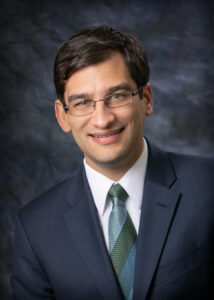
Rabbi Dr. Meesh Hammer-Kossoy teaches Talmud and is the Director of Admissions and the Director of the Social Justice Track at the Pardes Institute of Jewish Studies, a Beit Midrash dedicated to dialogue and empowerment of Jews across the religious spectrum in Jerusalem. Meesh is engaged with a variety of social campaigns especially in the areas of women’s and human rights and peace. Originally from Washington, D.C., Meesh has a BA from Brandeis and a Ph.D. from New York University. Her dissertation explored the courageous manner in which the rabbis of the Talmud created a new criminal punishment system. In 2015, Meesh was among the first cohort of women to be ordained as Orthodox rabbis. She completed her studies at Beit Midrash Har’el and received ordination from Rabbi Herzl Hefter and Rabbi Daniel Sperber.
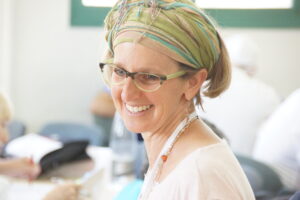
Dr. Raphael Magarik is an assistant professor of English at the University of Illinois at Chicago. He received his Ph.D. from the University of California, Berkeley and his BA from Yale. He has taught Jewish texts for Kevah, Hadar, and BINA, and written for “The New Republic,” “The Atlantic,” and “Haaretz.” He is an alumnus of the Dorot fellowship and the Bronfman Youth fellowship, and he studied at Yeshivat Maale Gilboa. He is currently at work on the history of the idea of the biblical narrator, as well as on a respectable sourdough loaf.
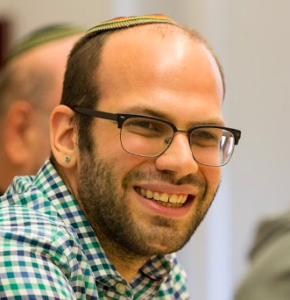
Rabbi Alana Suskin is an educator, activist, and writer. She holds BAs in Philosophy and Russian, an MA in Philosophy, a graduate certificate in Women’s Studies, an MA in rabbinic studies and ordination from the Ziegler School in California. She also received additional ordination as an Orthodox Rabbi from Yeshivat Maharat in 2020. She is senior editor of the progressive blog Jewschool.com. She has served on the boards of T’ruah, Jews United for Justice, and Interfaith Conference of Metropolitan Washington and is a founding fellow of CLAL’s project, Rabbis Without Borders. Rabbi Alana is co-founder and co-director of The Pomegranate Initiative, a non-profit fighting anti-Semitism and Islamophobia through education and relationship-building.
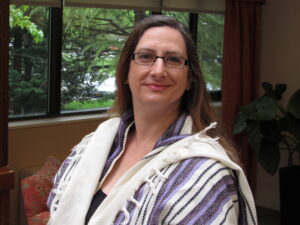
Tamar Zaken is the Chief Program Officer at HaMaqom |The Place in Berkeley California. Prior to this role, Tamar served for over a decade on the leadership team of Memizrach Shemesh – the Center for Jewish Social Activism in Israel. There she used Sephardic texts as community organizing tools, and ran a Jewish service learning program for more than 300 pre-army volunteers. Tamar holds a bachelor’s degree in political science from Columbia University, a bachelor’s degree in Jewish history from the Jewish Theological Seminary and a Master of Social Work degree from Yeshiva University. In her spare time, Tamar translates Sephardic Rabbinic texts to expose English-speaking audiences to their inspiring message of inclusion and justice. Tamar lives in the East Bay with her husband and two daughters.
